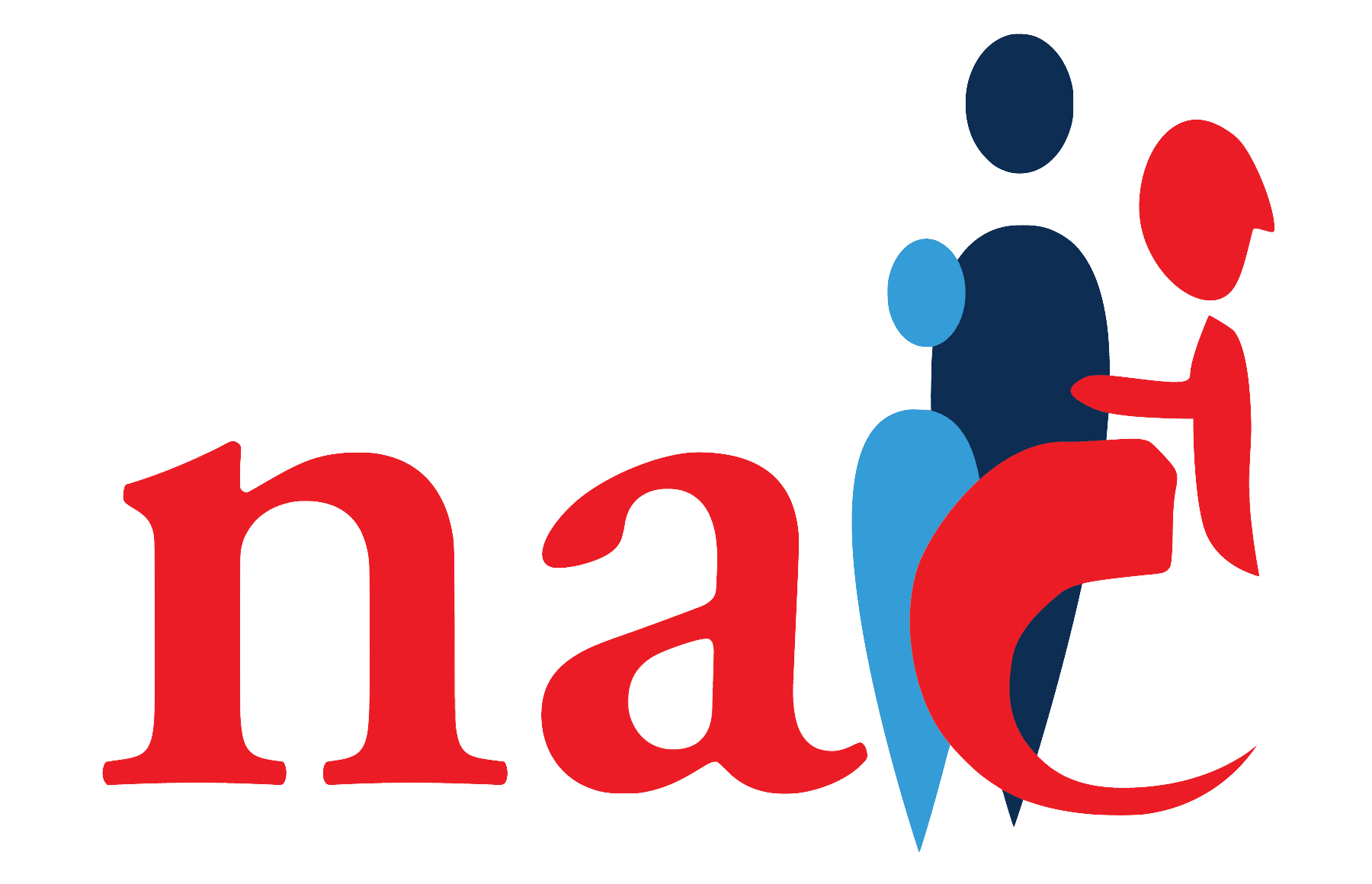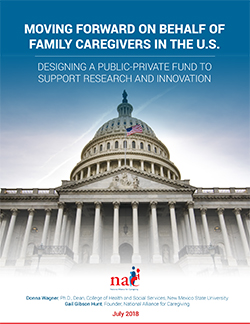Innovation
The nation has begun to recognize the essential role that unpaid friends and family members play in supporting individuals with ongoing health and assistance needs. Yet these informal support systems are not sufficient to support the many Americans with care needs. Policymakers need pathways that will encourage businesses, entrepreneurs, think tanks and incubators to find sustainable marketplace solutions to support and augment the support provided by family caregivers across the lifespan.
With a grant from the Robert Wood Johnson Foundation, the National Alliance for Caregiving was honored to host a one-day summit on Public-Private Innovation in Family Caregiving on April 24, 2018. This report captures the multi-stakeholder input of that summit and offers a roadmap for next steps.
Designing a Public-Private Fund to Support Research and Innovation
In 2016, the National Academies of Science, Engineering, and Medicine (NASEM) released the report Families Caring for an Aging America. The report was prepared by an expert panel convened to examine what was known about family caregiving in the United States and to identify policies that would better support unpaid, friend or family caregivers of older adults (family caregivers). According to the Families report, at least 17.7 million people in the United States are family caregivers for an individual 65 years of age or older with a significant health problem or disability.
The report outlines the underlying factors that make action to develop policies that support family caregivers essential. For example, there is a rapidly increasing number of older Americans and a concomitant number of “shrinking families.” Not only does family caregiving have personal consequences for those family members who are providing care, but care may be complicated by systemic barriers such as difficulty in dealing with medical professionals or providers of home-based care or in some cases, being excluded from shared decision-making with the person receiving care and their providers. The report points out that while there are effective interventions that could engage and support family caregivers, few family caregivers have access to these assessments and professional interventions that could support both the family caregiver and the older adult.
The final recommendation to develop an innovation fund (also known as “Recommendation 3”) is now receiving attention and action in the current project described in this document. Recommendation 3 calls on the U.S. Secretaries of HHS, the Department of Labor, and the VA to work with leaders in health care and long-term services, technology, and philanthropy to set up a public-private fund for innovation and research that will accelerate change and address the needs of caregiving families.
With funding from Robert Wood Johnson Foundation, NAC organized and hosted a meeting of a diverse group of stakeholders to discuss and design a response that would move the bar forward on the development of a public-private fund aligned with the vision provided in Recommendation 3.
Contact / Subscribe to Newsletter

